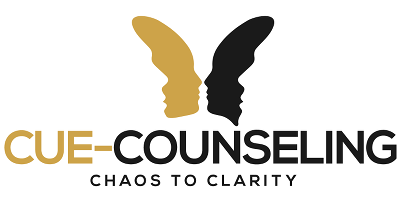It can be tough to know what to do about a friend’s mental health struggles.
You might think that only a mental health professional could help someone in that state, but the good news is that it isn’t required. You can do a lot just by being a good friend.
Here’s how to be the best resource possible when a friend is struggling.
The Helping Dilemma — Empathy vs. Encouragement
Try to reflect on times when you’ve struggled.
In those moments, what were you craving from others? What helped you the most?
Did people show you empathy, or did they tell you to “buck up”? Did they take your problems seriously or minimize them and encourage you to be tough? What mattered more: tough love or soft love?
Here are the merits of each way of helping:
Empathy
Every struggling human being needs empathy. Our most vulnerable selves being heard, acknowledged, and seen is the root of many forms of healing, especially trauma.
Knowing that another person relates to what you’re experiencing can be enormously helpful on its own.
Harshly dismissing a person’s problems as insignificant can breed resentment and self-loathing. Without empathy, a person can become lost.
Encouragement
Being understood comes with the danger of becoming complacent. Having your problems acknowledged does not mean that they automatically get solved. And nothing can be gained from reinforcing someone’s belief that their situation is hopeless.
Encouragement is believing in a friend’s ability to rise to the occasion. It reminds them of the hard things they’ve experienced in the past and gives them the support to conquer their battles.
Encouraging strength goes beyond empathy; even if it’s harsh, it gives people a fighting chance.
This is being the fire under someone, and even if they don’t like it at the moment, they might thank you in the future for giving them what they needed at the time.
Both modes of helping are essential. So naturally, the best way to help a friend struggling with their mental health is a combination of these two methodologies. Empathy must come first, with an emphasis on encouraging forward momentum.
The Power of Listening
There’s no better way to give the gift of empathy than to give your undivided attention.
You don’t need to be a guru, give great advice, or have all the answers. All you have to do is let the person speak as much as they have to. Ideally, you’ll be able to relate their struggle on some level. Or, at the very least, show that you care.
Show them you’ve done things you regret, too; you’ve had your heart broken, too; you have weird, messed-up thoughts sometimes. Let them know they aren’t alone.
When you give someone your ear like this, it gives them a special kind of freedom. By letting them feel safe enough to express their pain, it can take tremendous burdens off their shoulders.
And sometimes, in their stream of consciousness, they can find the answers to their questions on their own.
When you spend all your time in your head, your problems can color your reality and make you forget other perspectives. When you get a chance to express what troubles you, it can ground you again.
Once your friend feels heard, there is a greater likelihood that they can take the next step: action.
The Power of Accountability
A friend’s responsibility is to tell the truth, even when it’s hard.
This is difficult for a lot of people, especially if you’re naturally empathic. But it’s something you can practice.
It could be that the source of your friend’s woes is their own actions and beliefs. Or, they could be in a truly unfair situation, but they keep blaming the world instead of taking responsibility for what they can do.
Holding a friend accountable puts the ball in their court. Encouraging them to take responsibility for their pain gives them exactly what they need: empowerment.
A friend can only listen for so long. Eventually, a concerted effort on the part of the individual is necessary for them to overcome what they’re dealing with, whether that be anxiety, loss, depression, weight gain, financial woes, or any issue.
You could be the one who keeps them on track. You could be the person who gives them strength by expecting the best from them and giving them a reason for their highest selves to show up.
Because ultimately, that’s all you can do. You can’t solve a person’s depression for them. All you can do is believe in them and support them through their fight.
Practical Methods for Helping a Friend Struggling With Their Mental Health
- If they call you, take it.
- Remind them of the diet they’ve committed to or the exercise schedule they are trying to implement.
- Tell them you love them.
- Encourage them to go see a therapist, and if they’re reluctant, tell them that there’s no shame in it and that they may be struggling with things too complex to figure out on their own.
- Call them out when they are making excuses but in a caring way. “You’re almost there, don’t break the streak.”
- Keep yourself mentally healthy and strong so you can be there when your friends need you.
- Don’t give up on them, even if they’ve given up on themselves.
- Do something healthy together that does not involve drugs, alcohol, or excessive tech use.
- Remind them of who they are and what they’ve been through before.
- Be patient with their good and bad days.
- Don’t take their responsibilities away. The dignity of maintaining one’s life and independence is important.
- Tell them the truth even if it stings.
- Guide them through their painful moments while prioritizing your own time and resources.
- Let them know that times are crazy and a lot of people are probably feeling the same way right now.
